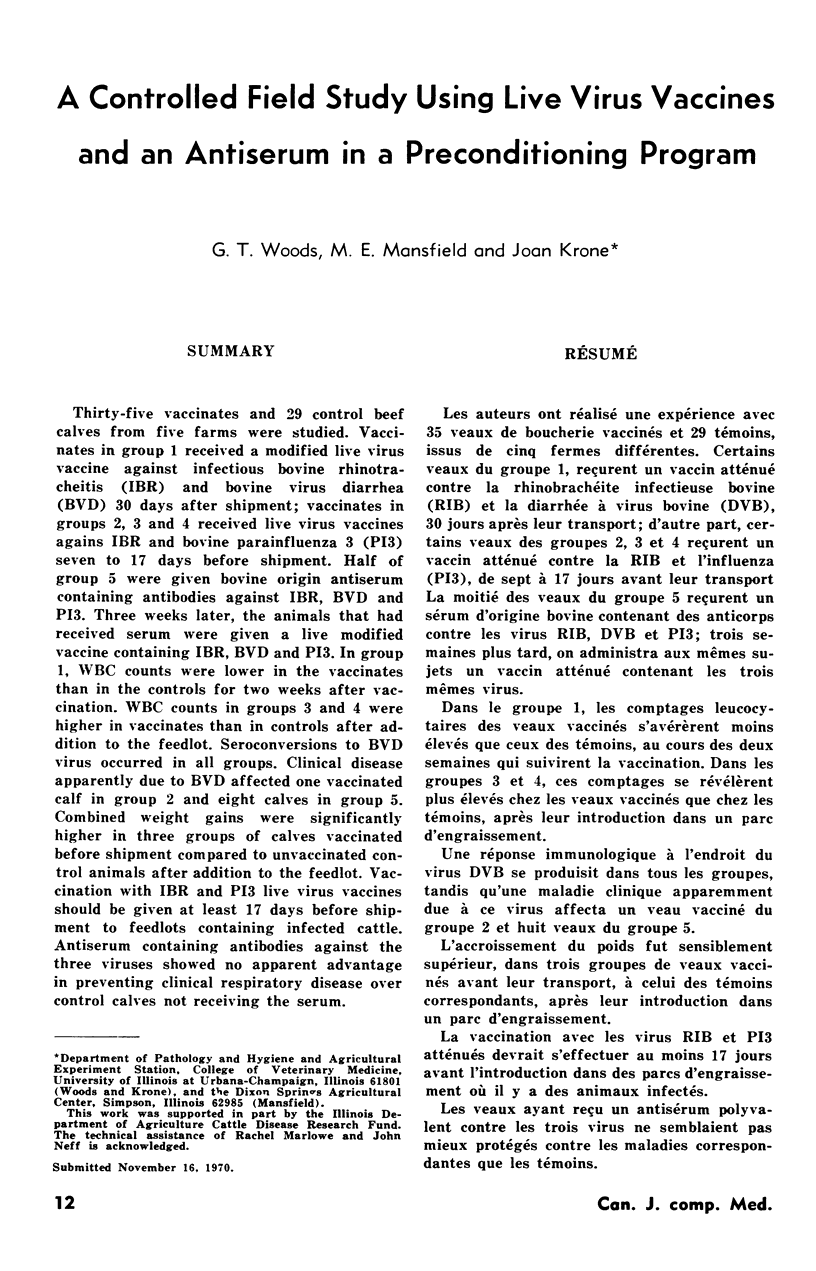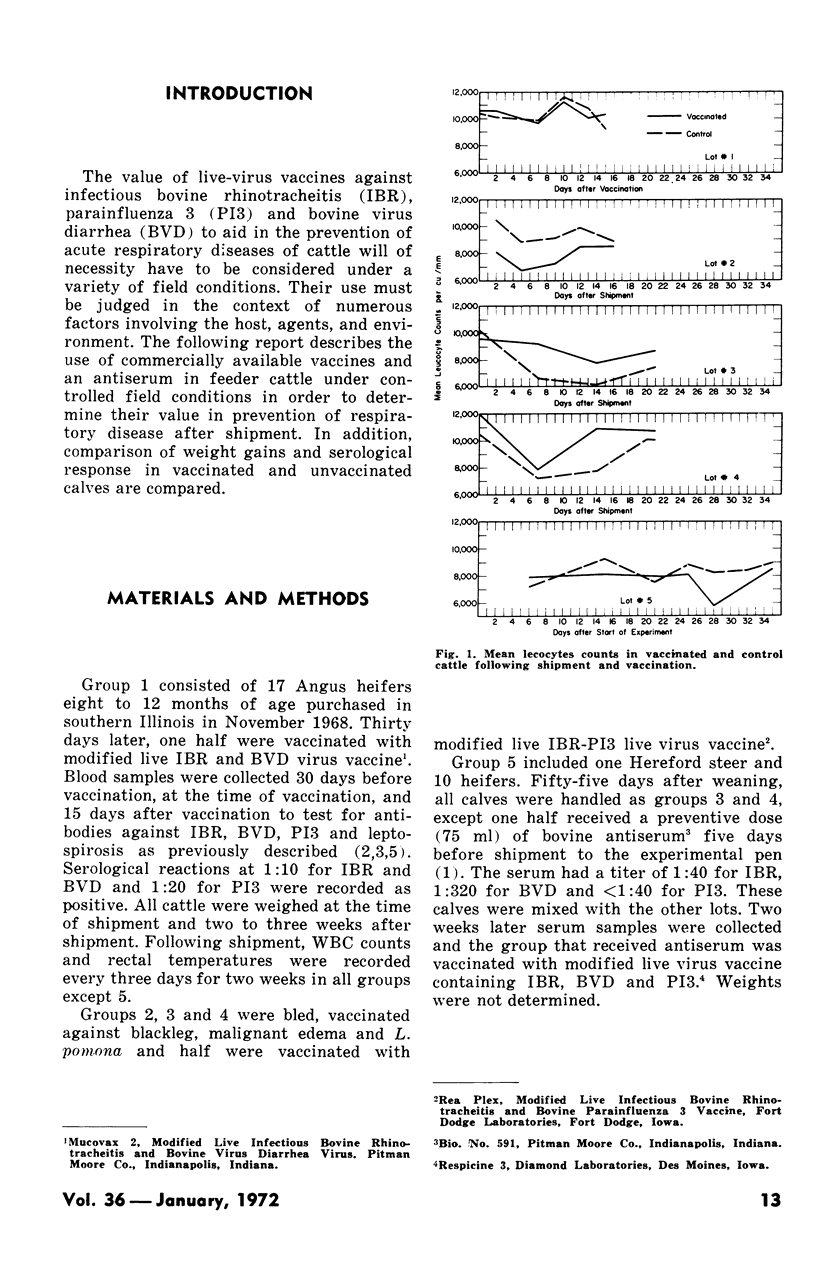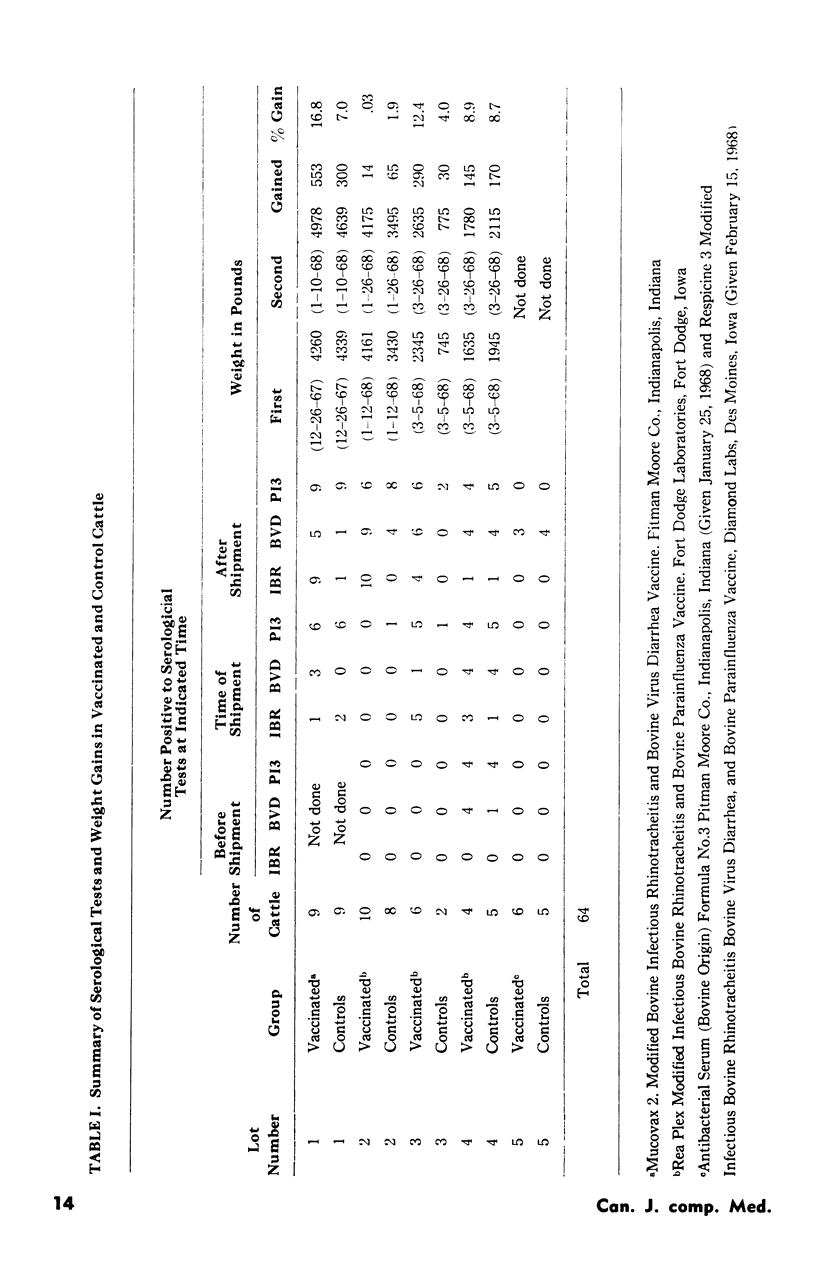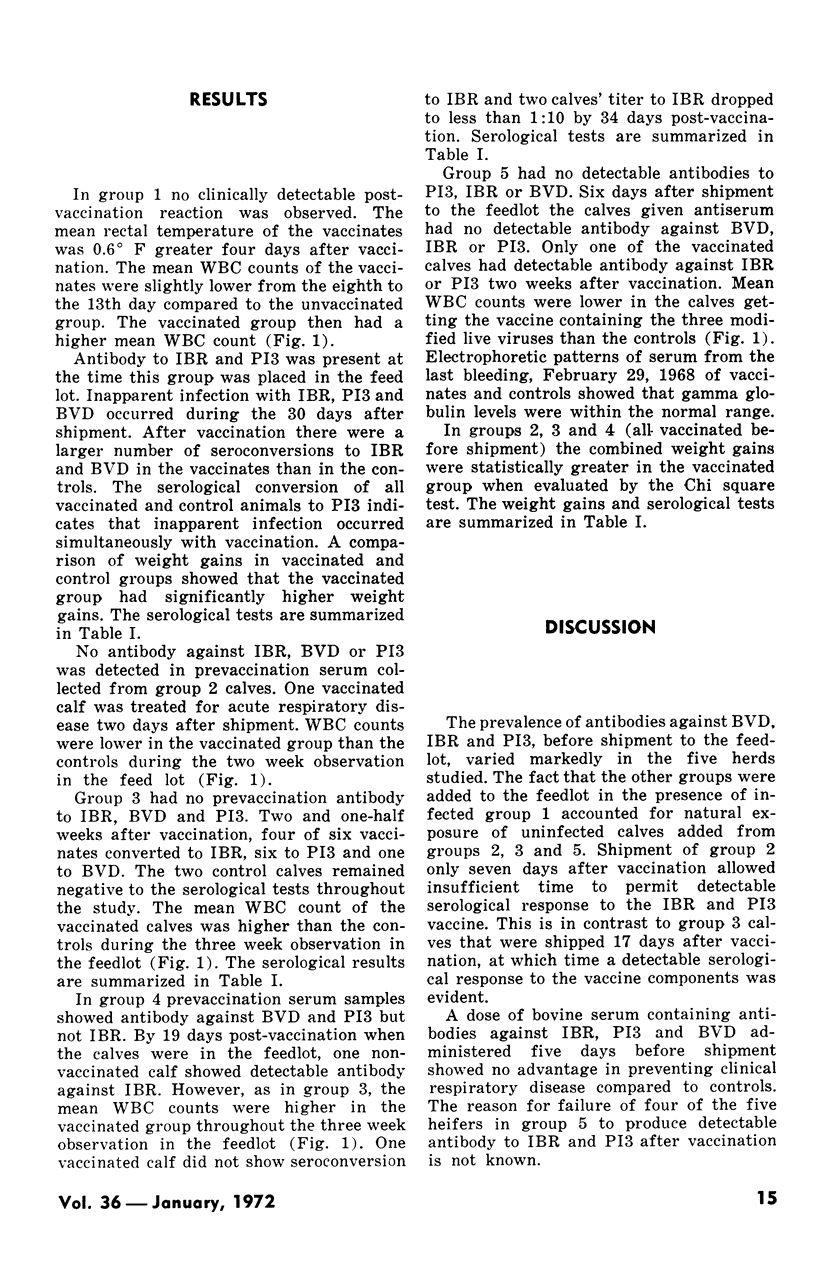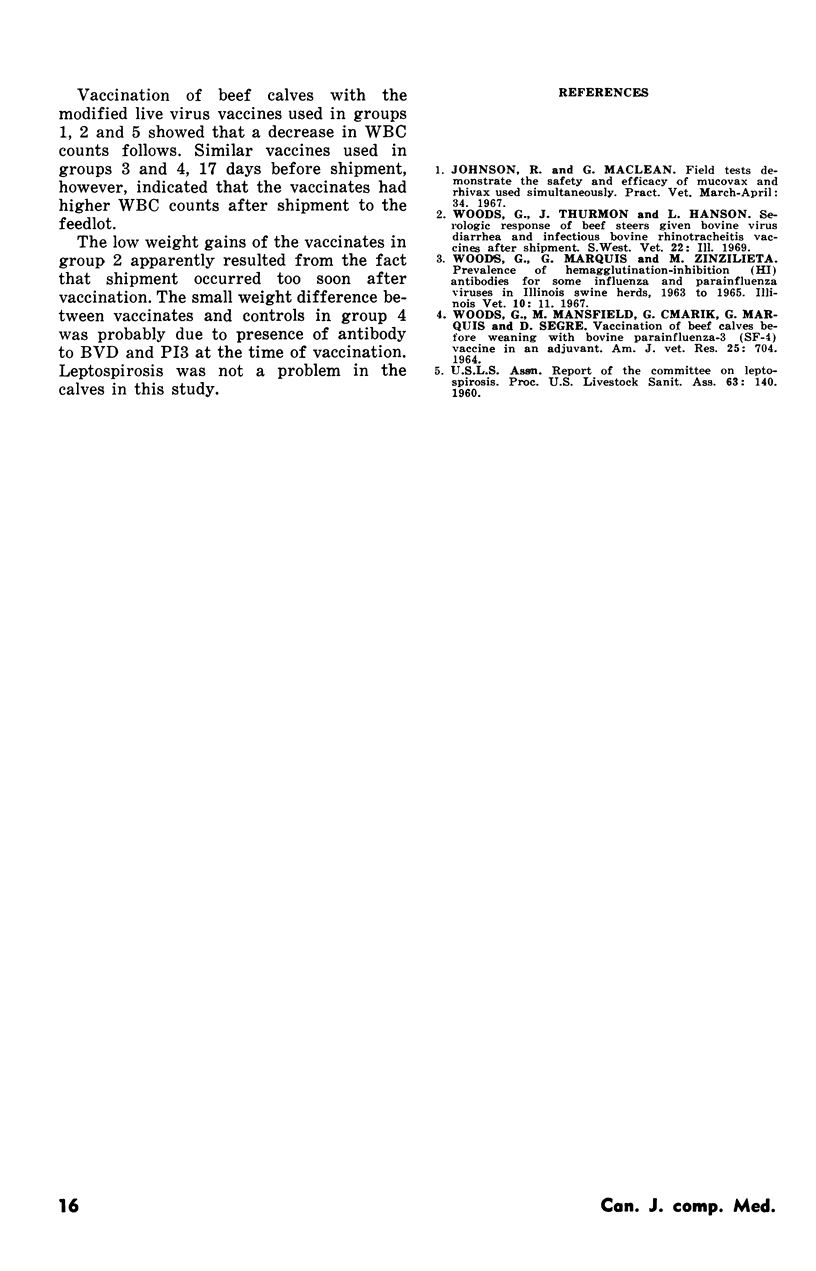Abstract
Thirty-five vaccinates and 29 control beef calves from five farms were studied. Vaccinates in group 1 received a modified live virus vaccine against infectious bovine rhinotracheitis (IBR) and bovine virus diarrhea (BVD) 30 days after shipment; vaccinates in groups 2, 3 and 4 received live virus vaccines agains IBR and bovine parainfluenza 3 (PI3) seven to 17 days before shipment. Half of group 5 were given bovine origin antiserum containing antibodies against IBR, BVD and PI3. Three weeks later, the animals that had received serum were given a live modified vaccine containing IBR, BVD and PI3. In group 1, WBC counts were lower in the vaccinates than in the controls for two weeks after vaccination. WBC counts in groups 3 and 4 were higher in vaccinates than in controls after addition to the feedlot. Seroconversions to BVD virus occured in all groups. Clinical disease apparently due to BVD affected one vaccinated calf in group 2 and eight calves in group 5. Combined weight gains were significantly higher in three groups of calves vaccinated before shipment compared to unvaccinated control animals after addition to the feedlot. Vaccination with IBR and PI3 live virus vaccines should be given at least 17 days before shipment to feedlots containing infected cattle. Antiserum containing antibodies against the three viruses showed no apparent advantage in preventing clinical respiratory disease over control calves not receiving the serum.
Full text
PDF